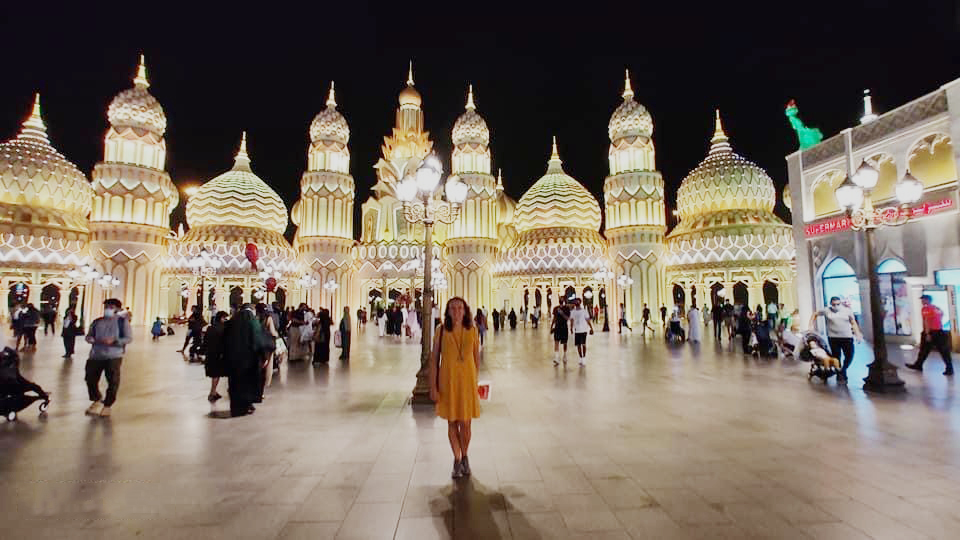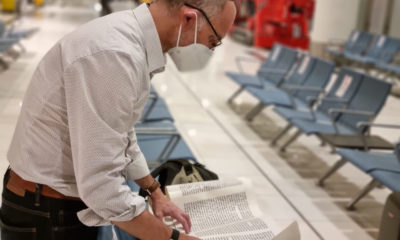
Featured Item

Israelis flock to UAE despite warnings
Israelis are flocking to Dubai in droves following normalisation with the United Arab Emirates (UAE), and in spite of security warnings against visiting the region. One of the reasons is to escape the confines of the COVID-19 lockdown at home.
A security advisory reportedly issued by Jerusalem’s Counterterror Bureau last week warned Israeli travellers that they risked being targeted following the death of Mohsen Fakhrizadeh, the alleged mastermind of Iran’s rogue nuclear weapons programme. Iran blames Israel for the death, prompting the warning against trips to Abu Dhabi, Dubai, Bahrain, and other Arab countries.
According to the Times of Israel, the bureau said there was a “basic concrete threat” in the UAE and Bahrain, the third-highest advisory after “very high concrete threat” and “high concrete threat”. Israel’s National Security Council reiterated the warning in a statement, saying that Iran might try to attack Israelis overseas.
Nevertheless, hundreds of Israeli tourists are booking flights and making the most of the opportunity afforded by the normalisation between Israel and the UAE.
“Our main reason for coming here was really a holiday, to get out of Israel,” says Carla Bortz, an ex-South African who has lived in Israel for the past 30 years. “There are a lot of limitations in Israel because of COVID-19, and we really wanted to get away for a bit.”
Bortz and her husband have been in Dubai for more than a week, visiting one of only three green-light countries to which Israelis can travel at the moment without having to go into quarantine upon their return.
“I was initially afraid to travel under corona and very scared of being infected,” she says. “A day before we were scheduled to leave, an article came out in Israel about Iran and the threat.
“My sister called me and said it wasn’t a good idea, and my sons who are serving in the army told me I’d be better off not taking a chance.
“I wasn’t so sure about it, but my husband reasoned that it would be misguided for Iran to use an Arab state to target Jews – it wouldn’t look good. So we decided we’d travel.”
And they certainly weren’t alone. Bortz says that thousands of fellow Israelis are converging on Dubai, with about 50 000 expected to arrive in December alone.
“The plane was completely full,” she says. “Plenty of Israeli tour groups are being organised, and we wanted to arrive early so that we could avoid the crowds.”
Bortz says her flight to the Arab country was the first Israeli flight from Israel to the UAE with IsraAir. Flydubai, the UAE’s first airline to offer direct routes between the two countries has added a third daily flight between Dubai International and Tel Aviv’s Ben Gurion Airport starting this week to cope with demand.
Bortz decided to apply for a visa in spite of word of an initial agreement between Israel and the UAE, paying 500 Israeli Shekels to have it issued.
“I didn’t want to take the chance,” she says. “I have a friend in the department of foreign affairs who told me that he wasn’t sure when the visa agreement would come into effect, so I chose to get a visa on my South African passport.” She says Israelis are paying 90 Shekels for their visas.
Although more concerned about contracting COVID-19, Bortz says she and her husband decided not to display any signs that they were Jewish upon arriving in Dubai.
“I asked my husband, who normally wears a kippa, not to put it on. I felt afraid. He’s wearing a cap instead, and though we’ve seen a few Israelis around with their kippot on and tzitzit out, I don’t think it’s a good idea.
“We’re not revealing that we are Jews, and we’re not speaking Hebrew. I also deliberated whether to say I’m South African or Israeli because I’m not sure what the response would be.
“Still, some people we’ve spoken to have loved to hear that we are from Israel. They’ve been very welcoming and seem happy that we’ve come.”
However, just because the sheikh has said there’s peace doesn’t mean all will be feeling so positive, Bortz says.
“I haven’t really felt a great love for us, but that could just be my Israeli stereotype,” she laughs. “People could be behaving kindly because the government has told them to, that they need to be welcoming to Israelis now. But it’s more complicated than that.”
Nonetheless, Bortz says her trip has offered a variety of opportunities, affording her access to places and people that were previously off-limits to Israelis.
“It’s remarkable to be visiting the Arab world,” she says. “As Israelis, we can’t get into Syria or Lebanon, but we are now visiting Dubai. It’s incredible, and it’s been an extraordinary cultural experience. This is really historic, though Dubai is very Western and feels glitzy like Las Vegas sometimes.”
Thousands more Israelis are scheduled to visit, desperate to get away from lockdown and restrictive measures at home.
“People need oxygen and want to get out,” says Bortz “Israelis love to travel, and coupled with the need to get away and visit a country that won’t require them to isolate when they go back, they’re all coming here. It’s not just the peace agreement that brings them here, it’s a chance to get away to one of the places we can go to.”
With Israeli tour programmes running day and night, Bortz is sure that the UAE will make a fortune from Israelis flocking to its shores.
“A group of tour guides is being trained to bring more groups here, offering kosher options as well,” she says. “Plenty of people from Israel are heading to Dubai to establish kosher restaurants, and the demand for kosher food is actually going up.
“There was even a haredi wedding held here this past week because there are fewer limitations than in Israel. People are eager to get away from restrictions and breathe a bit, in spite of the warnings.”










